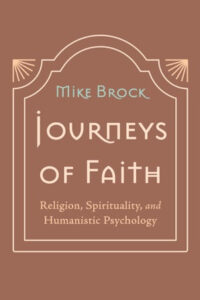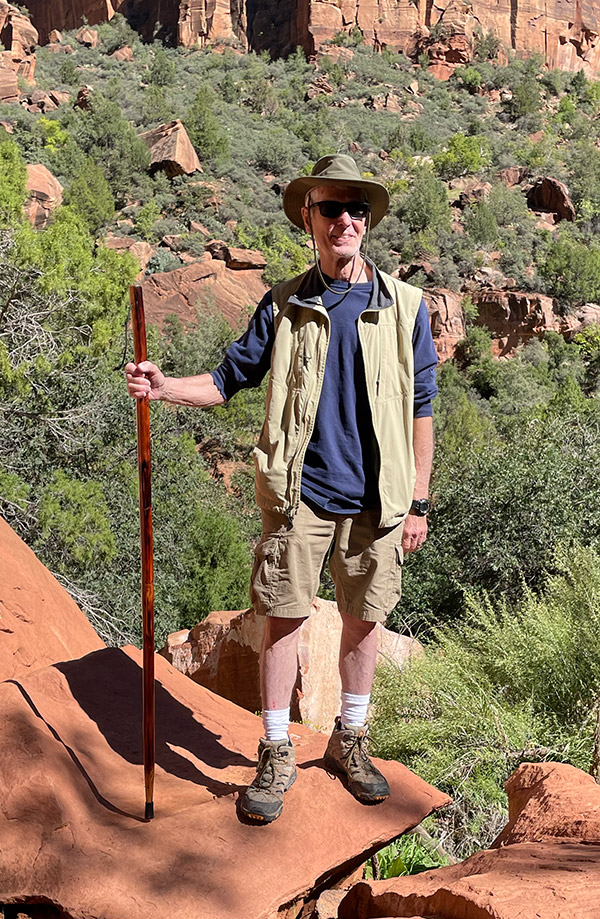Welcome. I’m Mike Brock, life coach, educator, and author.
A licensed professional counselor for almost twenty years, I now offer life coaching opportunities for adults online via Zoom, FaceTime, or phone.
A lifelong educator, I am currently the Carl Ransom Rogers professor of counseling psychology at the Graduate Theological Foundation.
I am also an author of several parenting and spiritual books. Journeys of Faith: Religion, Spirituality, and Humanistic Psychology, my most recent book, is available through online sources.
Journeys of Faith: Religion, Spirituality, and Humanistic Psychology
 Journeys of Faith: Religion, Spirituality, and Humanistic Psychology examines the role and contributions of the leading figures of the humanistic psychology movement, with particular attention to their spiritual journeys. Humanistic psychology rose to prominence in America during the post-World War II years and continued to influence the national conversation throughout the remaining decades of the twentieth century. It is experiencing a resurgence in the present day in response to the need for a psychological orientation and a therapeutic approach that address meaning and purpose in life.
Journeys of Faith: Religion, Spirituality, and Humanistic Psychology examines the role and contributions of the leading figures of the humanistic psychology movement, with particular attention to their spiritual journeys. Humanistic psychology rose to prominence in America during the post-World War II years and continued to influence the national conversation throughout the remaining decades of the twentieth century. It is experiencing a resurgence in the present day in response to the need for a psychological orientation and a therapeutic approach that address meaning and purpose in life.
The key players—Abraham Maslow, Carl Rogers, Erich Fromm, and Rollo May—hailed from different sociocultural and religious backgrounds and followed dissimilar, though interconnecting, professional paths. They all rejected the orthodoxy of their religious inheritance in favor of a more humanistic approach and, in the process, discovered a renewed spirituality that, they hoped, would address the concerns of a world yearning for something to believe in.
While Maslow, Rogers, Fromm, and May confronted the world’s problems through the lens of psychology, other thinkers approached them through different, though equally humanistic, perspectives. Among those others, the evolutionary biologist Julian Huxley is highlighted as one with particularly useful insights into the intersection of science and spirituality. Others still confronted the times through a religious lens. Among those, Paul Tillich, Martin Buber, and Pierre Teilhard de Chardin receive special attention, particularly in the context of their interactions with Rollo May, Carl Rogers, and Julian Huxley, respectively.
Finally, in addition to the intersection of humanistic psychology and spirituality, two additional themes resonate throughout the story: the influence of the centuries-long Jewish tradition of scholarship and social justice as observed in Freud, Fromm, Maslow, and others, and the frequent examples of friendship and professional cooperation between the secular and the religious worlds as observed, for example, in the friendship between the nontheist Julian Huxley and the Catholic priest Pierre Teilhard de Chardin. They offered a model of cooperation between the secular and the religious worlds that might serve us well today.
Mike Brock, PhD, PsyD
(214) 364-4154
mike@mikebrock.org

Journeys of Faith now available through Amazon or your favorite bookseller.